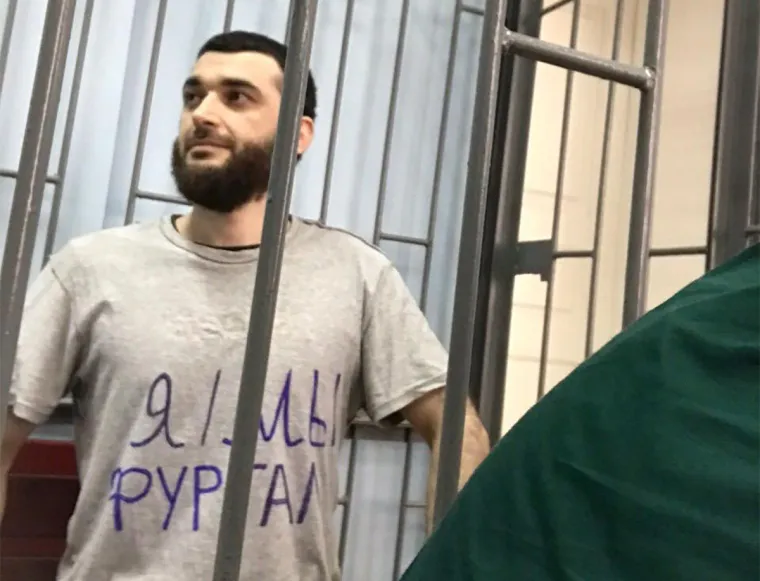New York, September 12, 2023—The Committee to Protect Journalists condemns the Tuesday 17-year sentence issued to Russian journalist Abdulmumin Gadzhiev, the religion editor of independent outlet Chernovik.
“CPJ is appalled by the 17-year prison sentence for Russian journalist Abdulmumin Gadzhiev, who has already spent four years in jail on trumped-up charges in retaliation for his journalism for simply interviewing a person whom the authorities later labeled as terrorist,” said Gulnoza Said, CPJ’s Europe and Central Asia program coordinator, in New York. “Russian authorities must not contest Gadzhiev’s appeal, drop all the charges against him, and stop jailing independent voices.”
On Tuesday, September 12, the Yuzhniy Military Court in the southern city of Rostov-on-Don convicted Gadzhiev—who denied the allegations—of financing terrorism, participating in a terrorist organization, and organizing the activity of an extremist organization.
Gadzhiev is to serve the first seven years in prison and the rest of his sentence in a penal colony, Magomed Magomedov, deputy editor-in-chief of Chernovik, told CPJ via messaging app, adding that the journalist will appeal the sentence.
Russian authorities have detained Gadzhiev since June 2019 and accused him of participating in three militant organizations, including the Islamic State group, and transferring 16,000 rubles (US$245 at the time) to Islamic State.
Authorities claimed that Gadzhiev’s reporting on the Ansar charitable foundation—which the prosecution accused of funding Islamic State and two other organizations labeled as terrorist—influenced readers to financially support those groups. The journalist’s colleagues said they believe the charges stem from Gadzhiev’s 2013 interview with Israil Ahmednabiev, who was later accused of terrorism by Russian authorities.
In a courtroom statement on September 7, Gadzhiev said that the case against him had been “a ‘fake’ from start to finish” and that the four years he spent in prison were “the most productive years” of his life, during which he published “hundreds of reports from behind bars.”
While the court’s decision was not unprecedented, Magomedov told CPJ, it was surprising to Gadzhiev’s friends, colleagues, and the legal community. “Ordinary people who followed the process, who thought that the court would be more objective, are shocked,” he said.
CPJ’s email to the Yuzhniy Military Court in Rostov-on-Don asking for comment on Gadzhiev’s case did not immediately receive a response.
Gadzhiev’s colleagues have launched public campaigns disputing the allegations against him, with the Chernovik staff describing them as “illegal and unfounded” and retaliation for the newspaper’s critical coverage of local law enforcement.
On November 25, 2022, Chernovik announced that it had suspended its printed version due to “politically motivated pressure” from Dagestan authorities.
On December 15, 2011, Chernovik’s chief editor Gadzhimurat Kamalov was killed in retaliation for his work.
Russia held at least 19 journalists, including Gadzhiev, on December 1, 2022, when CPJ conducted its most recent prison census.
[Editor’s note: The sixth paragraph of this report has been updated to correct the year in which Gadzhiev interviewed Israil Ahmednabiev. The penultimate paragraph was updated to correct a typo.]
